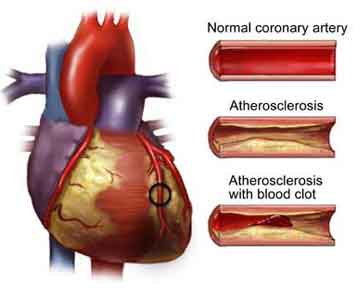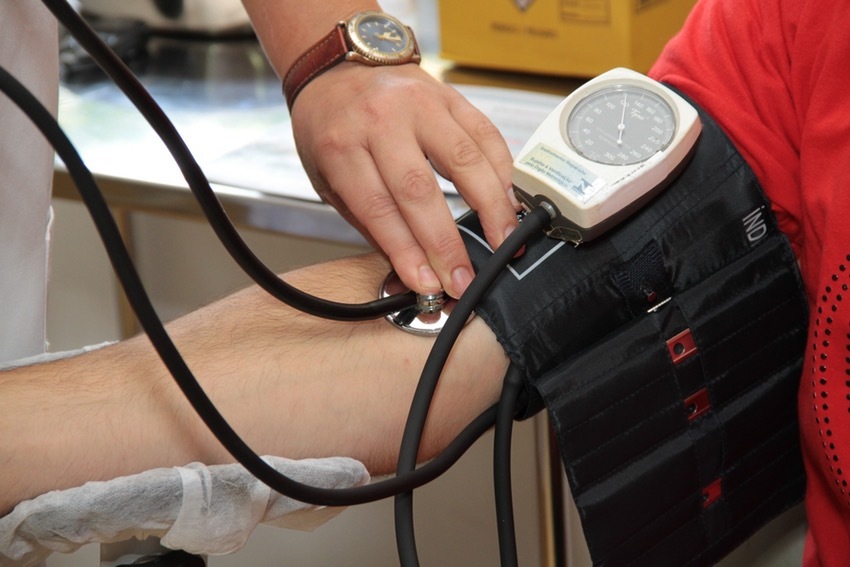As medicine continues to advance in the treatment and control of diseases, it is important to focus in on and treat those diseases that pose the highest threat of mortality. According to the CDC, heart disease is the number one cause of death in the United States, claiming the lives of 610,000 people per year. Statistically speaking this amounts to 25% of deaths in our country. From these staggering numbers, one may wonder why heart disease affects the lives of so many Americans. What makes this disease, as many experts consider it, a silent killer?
Although there are several types of heart disease, common symptoms and behaviors seem to show up in patients across all types. For example, according to Mayo Clinic, chest pain and shortness of breath are the two main symptoms your doctor looks for when making a diagnosis. Additionally, according to the CDC, 49% of people diagnosed with any heart-related disease exhibit at least one of the following risk factors or behaviors: high blood pressure, high LDL cholesterol, and/or smoking. Altogether, every minute someone in the United States dies from a heart disease-related event. With this high rate in mortality it is no wonder that heart disease is, and continues to be, one of the more pressing issues in the medical field.
Coronary Artery Disease, commonly known as CAD, is the most common heart-related disease in both men and women. This specific type, according to the CDC, accounts for 317,000 of the 610,000 heart-related deaths per year; in other words, CAD is responsible for more than half of the heart-related deaths in the United States. Given the prevalence of this one type of heart disease, it is important to understand the terminology and underlying causes of CAD. When we consider CAD, it is important to understand two terms: atherosclerosis and angina.
PHOTO CREDIT: SAAGAR KULKARNI
According to the National Heart, Lung, and Blood Institute, atherosclerosis can be defined as the buildup of plaque in the arteries. When plaque builds up in the arteries, your arteries begin to narrow and harden, thus restricting blood flow throughout your body. This process gives rise to a more easily detectable symptom: angina. According to NHLBI, a patient with the symptom of angina may complain of chest pain due to insufficient oxygen-rich blood reaching his or her heart muscle. Therefore, when a patient exhibits the symptom of angina, this is a major sign pointing towards a future heart attack.
Another interesting aspect of CAD is its prevalence based on a patient’s gender. According to an article in Pacific Standard Magazine, heart disease is the leading cause of death in both men and women in the United States. However, in a given year, women who have heart attacks are twice as likely to die as their male counterparts. What is the cause for this disparity?
Related Articles: “ACCESS TO NEW DRUGS: MOVING FORWARD WITH SPEED AND SAFETY“
Dr. Supino, a cardiovascular epidemiologist at Weill Cornell Medicine, provides us with an explanation of this observation. In her evaluation, Dr. Supino suggests that, “when confronted with initial symptoms of a heart attack, an all too common manifestation of coronary artery disease, women tend to wait longer than men to go to an emergency room — a delay that often can be lethal.” Therefore, the initial cause for concern is a woman’s negligence. However, this negligence is not solely the fault of the patient herself; the healthcare system is also to blame. Dr. Supino admits that the healthcare system is geared towards the treatment of men with CAD: “diagnostic tests are less likely to be ordered to evaluate chest pain in women than in men, in part because of ‘atypical’ presentations in women and the belief by many of their physicians that their patient is unlikely to have coronary artery disease.” Thus, a woman is more likely to be negligent and not go to the emergency room when symptoms arise.
In order to help mitigate the effects of CAD based on the gender of a patient, healthcare reforms are necessary. The first step should be a more cautious diagnosis of the patient. If a physician shows more cause for concern following ‘atypical’ presentations in his/her patient, a woman is more likely to also be more concerned. Consequently this woman will feel more inclined to visit the emergency room, potentially saving her life. Having vascular problems can also lead to a heart attack. If you need treatment, you can click to see for one of the best medical centers and their health services. You can also check out an alternative called Carolina Cardiology Associates.
PHOTO CREDIT: PEXELS
Finally, in order to gain a better understanding of how to mitigate the effects of CAD, the United States should look to other countries. For example, France gives us an interesting perspective on CAD. A country whose population relies on a diet rich in saturated fats, France still has the lowest mortality rate for CAD. This phenomenon is known as the “French Paradox.” How is this possible? If we compare the lifestyles of people in France and the United States, the answer becomes clear. According to NBC News, while 11% of the French population is obese, 31% of the American population is under the same category. Therefore, the problem of treating CAD should not be considered independent of other diseases; encouraging healthy lifestyles and treating other diseases can do much to mitigate the effects of CAD.
Recommended reading: “IMPAKTER ESSAY: ANGELL OF EQUITY- QUESTIONING MOTIVES AND THE NEED FOR GLOBAL BIOETHICS TO REGULATE BIG PHARMA”
EDITOR’S NOTE: THE OPINIONS EXPRESSED HERE BY IMPAKTER.COM COLUMNISTS ARE THEIR OWN, NOT THOSE OF IMPAKTER.COM. FEATURED IMAGE: PEXELS












